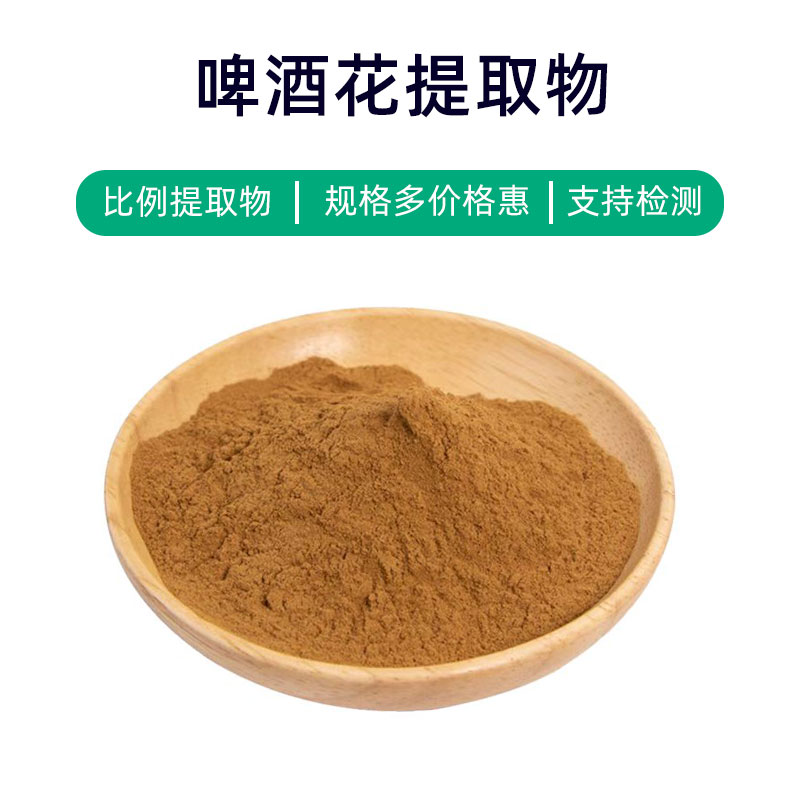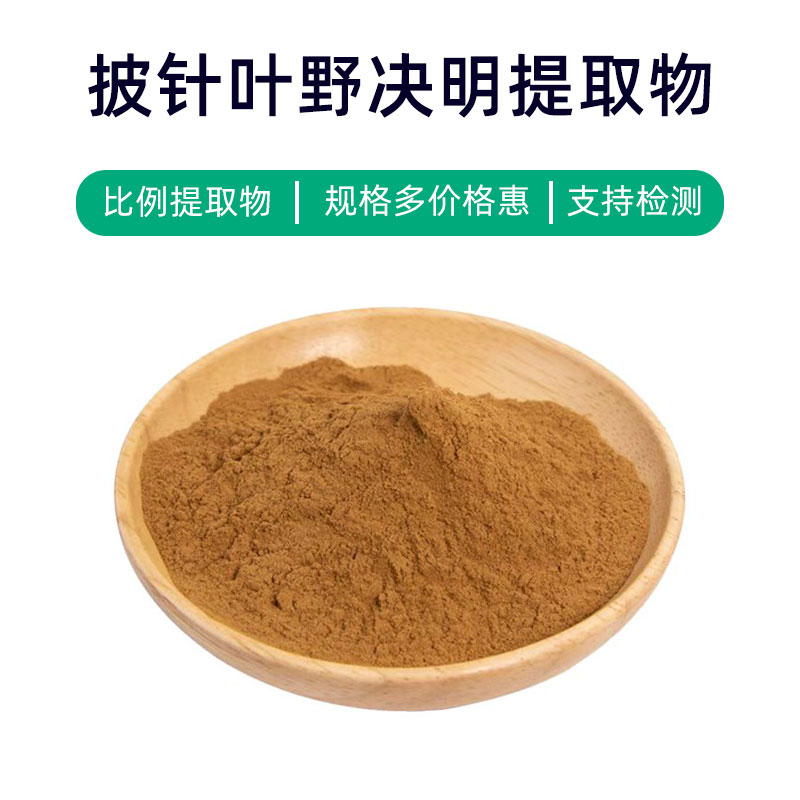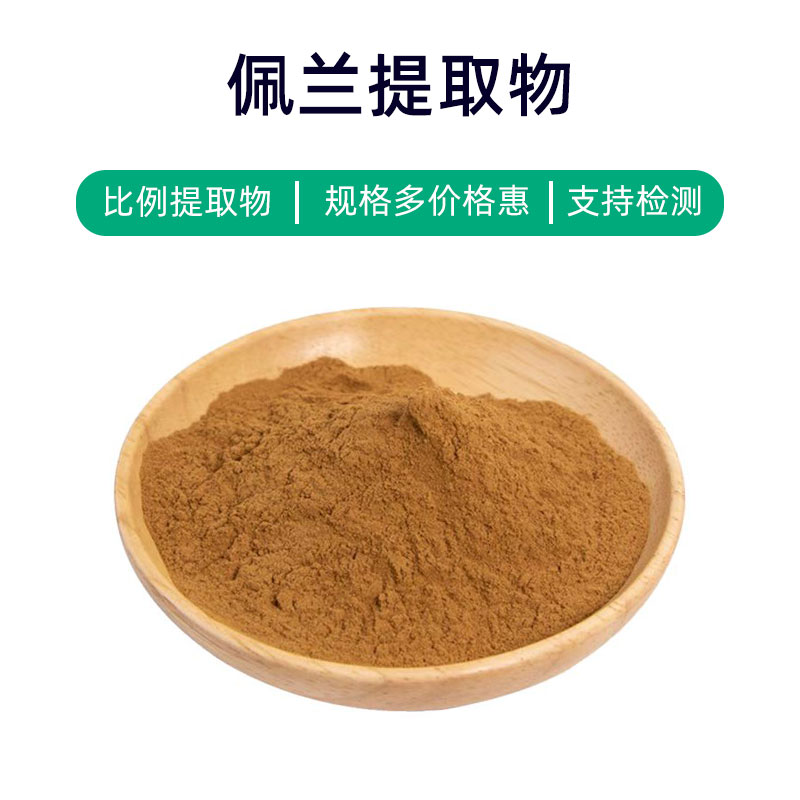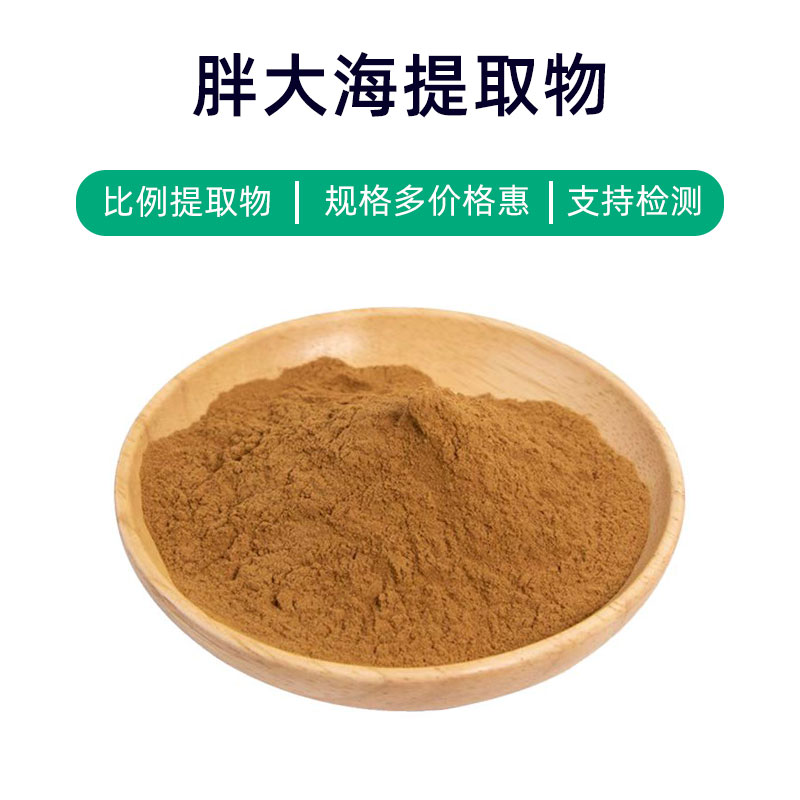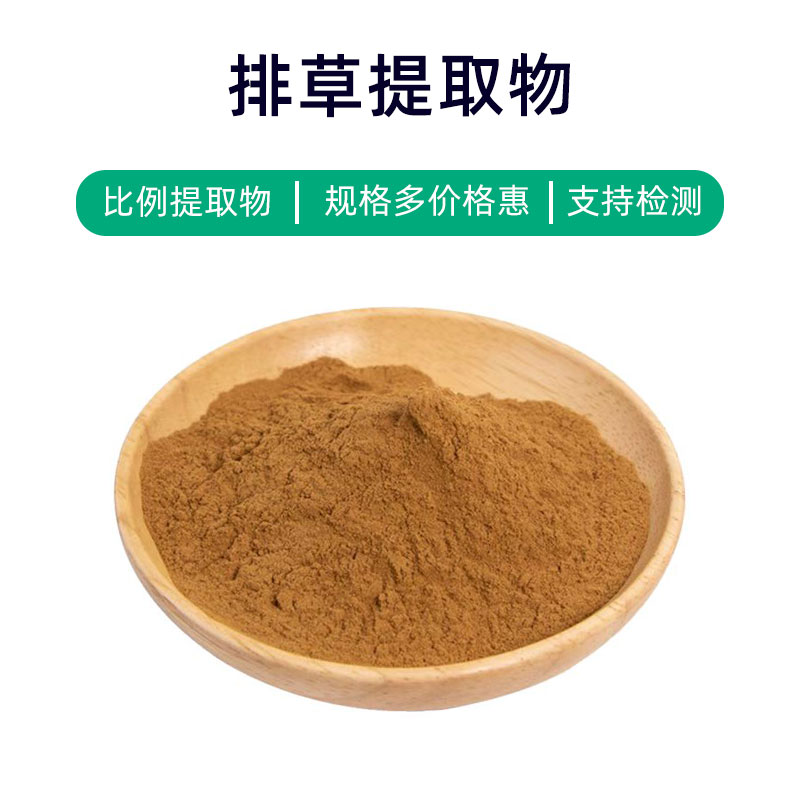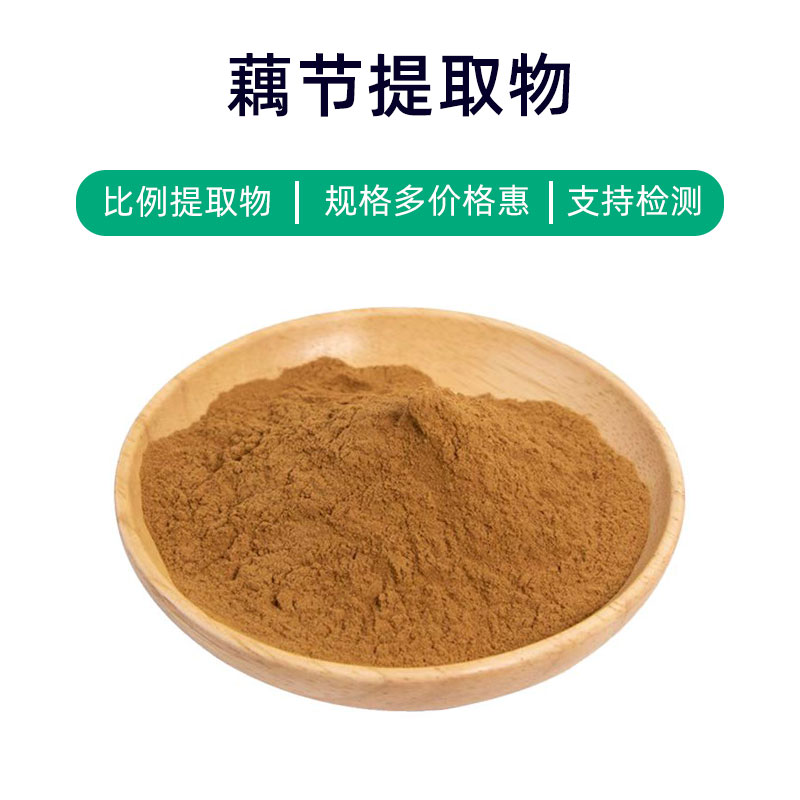Eggplant Flower Extract Product Introduction
Eggplant flower extract is a natural plant extract obtained from the flowers of the eggplant plant, containing abundant bioactive components such as flavonoids and phenolic compounds. These components give the extract various benefits and wide applications.
Firstly, eggplant flower extract has antioxidant properties that help eliminate free radicals in the body, slow down cellular oxidative damage, and aid in the aging process, keeping the skin healthy and youthful.
Secondly, eggplant flower extract exhibits anti-inflammatory effects, alleviating skin inflammation and discomfort such as redness and itching, providing soothing effects for sensitive skin or individuals with skin issues.
Additionally, eggplant flower extract is significant in beauty and skincare by promoting skin metabolism, enhancing the skin's self-repair ability, making it smoother and more delicate, improving skin elasticity, and addressing uneven skin tone.
In terms of applications, eggplant flower extract is commonly found in various cosmetic products such as skincare lotions, masks, and creams to improve skin texture, brighten complexion, and maintain skin hydration. It can also be used in daily health supplements as an antioxidant and anti-aging component for nutritional support.
In summary, eggplant flower extract, as a natural plant extract, offers multiple benefits and extensive applications, significantly aiding in beauty and maintaining healthy skin.
Eggplant Flower Extract Production Process
The production process of eggplant flower extract mainly involves the following steps:
- Raw Material Collection and Preparation: Fresh eggplant flowers are collected, typically at their peak blooming period. After collection, the flowers are washed and processed to remove impurities and surface dirt to ensure the purity and quality of the raw material.
- Extraction of Active Components: The cleaned eggplant flowers are placed in extraction equipment, usually using methods like water extraction, ethanol extraction, or supercritical fluid extraction to obtain the active components. The extraction process involves controlling temperature, pressure, and extraction time to ensure efficiency and product quality.
- Concentration and Separation: The resulting solution is concentrated to remove excess solvent, yielding a concentrated liquid. Then, separation techniques (such as membrane separation or centrifugation) are employed to separate useful components from impurities, achieving pure eggplant flower extract.
- Filtration and Refinement: The extract undergoes filtration to eliminate suspended particles, enhancing purity levels. Various refining techniques (such as coagulation, precipitation, or crystallization) may also be employed to further purify the extract, ensuring product quality and stability.
- Drying and Grinding: The obtained eggplant flower extract is dried, typically through spray drying or vacuum drying methods, converting it into powder or granule form. The dried product is then ground to achieve the desired particle size.
- Packaging and Storage: Finally, the processed eggplant flower extract is packaged using moisture-proof, light-proof, and oxidation-resistant materials to ensure product quality and stability. The packaged products should be stored in a cool, dry, and ventilated environment, protected from direct sunlight and high temperatures, to extend shelf life and efficacy.
Eggplant Flower Extract Benefits and Side Effects
Eggplant flower extract, derived from the eggplant flower (scientific name: Plumeria rubra), possesses multiple benefits and functions.
- Antioxidant Action: Eggplant flower extract is rich in a variety of natural antioxidants, such as polyphenols and vitamins, which effectively eliminate free radicals, reduce oxidative stress, and protect cells from oxidative damage.
- Anti-inflammatory and Pain Relief: Research indicates that eggplant flower extract has certain anti-inflammatory and analgesic properties, which can help alleviate inflammatory pain and discomfort, providing supportive treatment for conditions like arthritis and muscle pain.
- Skin Care: Eggplant flower extract is widely used in cosmetics and skincare products, known for its soothing, moisturizing, and skin-repairing effects. It promotes skin cell regeneration, reduces dryness, roughness, and the formation of wrinkles, helping maintain healthy and youthful skin.
- Antibacterial and Antifungal: Eggplant flower extract contains various bioactive substances that exhibit antibacterial and antifungal effects, making it applicable for treating skin infections and inflammation, such as acne and skin fungal infections.
- Improved Sleep Quality: Some studies suggest that eggplant flower extract has calming and sedative effects, which can relieve anxiety and tension, improve sleep quality, and aid in falling asleep and extending sleep duration.
While eggplant flower extract is considered a natural product suitable for various contexts and uses, caution should be exercised:
- Conduct a skin sensitivity test before use to ensure no allergic reactions before applying it broadly.
- Avoid contact with eyes and mucous membranes to prevent discomfort or irritation.
- If any allergic reactions or skin discomfort occurs, stop using it immediately and consult a doctor.
- Store the product in a cool, dry place, avoiding direct sunlight and high temperatures to extend its shelf life.
Overall, eggplant flower extract has multiple benefits and functions, suitable for skincare, pain relief, and antibacterial applications. However, it is essential to use it in moderation and be aware of individual differences and possible allergic reactions.
Eggplant Flower Extract Application Scenarios and Dosage
Eggplant flower extract has extensive applications across medicine, food, and cosmetics, with usage varying by application scenario.
- Medical Applications:
- Uses: Eggplant flower extract is commonly used in medicine to manufacture drugs, health supplements, and medical supplies.
- Dosage: Typically processed into pills, capsules, or oral solutions as medicinal raw materials. Dosage depends on specific formulation guidelines, and it is advised to follow medical advice.
- Food Applications:
- Uses: Eggplant flower extract can serve as a natural food additive in food processing to enhance flavor and nutritional value.
- Dosage: It is generally used in baked goods, beverages, ice cream, etc., added according to the formulation percentages or weight ratios stated in production guidelines.
- Cosmetic Applications:
- Uses: Eggplant flower extract is commonly utilized in skincare products, beauty items, and cosmetics, known for its moisturizing, soothing, and hydrating properties.
- Dosage: It can be added to creams, lotions, serums, and masks according to formulation needs, typically guided by product instructions or manufacturers’ recommendations.
The application scenarios for eggplant flower extract cover several fields, with medicine, food, and cosmetics as its primary focus. It is recommended to use the extract according to industry standards and product guidelines to ensure its safety and effectiveness.
Eggplant Flower Source Plant Introduction, Distribution, and Growth Environment
The eggplant flower (scientific name: Gardenia jasminoides) is a common shrub belonging to the Rubiaceae family. Below is an introduction to its source plant, distribution, and growth environment.
Source Plant Introduction:
Eggplant flower is an evergreen shrub typically thriving in warm, humid climates. It generally grows 1.5 to 3 meters tall, with a dense crown, leathery leaves, and egg-sized flowers that are white or pale yellow, emitting a strong fragrance, making it both ornamental and medicinally valuable.
Distribution:
Originally native to southern China, the eggplant flower is primarily found in provinces such as Guangdong, Guangxi, Fujian, Yunnan, and Jiangxi, as well as Taiwan. Additionally, it has a broader distribution in countries and regions across Southeast Asia, including Japan, Vietnam, and Thailand.
Growth Environment:
Eggplant flowers prefer warm and humid climates and are not strict about soil quality, though they thrive in well-drained, fertile, loose soil. They typically grow on hillsides, along roadsides, or by rivers, favoring abundant sunlight but can adapt to partial shade. Eggplant flowers have poor cold resistance and are not suited to cold climates or dry environments; therefore, they often require greenhouse protection or indoor care during winter in northern regions.
In summary, the eggplant flower is a plant that thrives in warm, humid climates, suitable for growth in southern China and Southeast Asia. It has high ornamental value and is commonly planted in gardens, yards, or parks, while also serving as a frequently used Chinese medicinal material, widely applied in traditional medicine formulations.
Eggplant Flower Extract Processing and Storage
The processing of eggplant flower extract typically includes steps like washing the raw materials, crushing, soaking, filtering, concentrating, and drying. The cleaned fresh flowers are crushed and then soaked, followed by extraction, filtering, and concentrating to attain a concentrated liquid, which is then dried to obtain powdery extract. During storage, it should be placed in a cool, dry, and ventilated area, avoiding direct sunlight and high temperatures, and sealed to prevent moisture. The extract should be kept away from odors and chemicals to ensure quality and stability.
Monica Sun is a seasoned expert in the plant extraction industry with over a decade of experience in research and production. She specializes in the extraction and purification of plant active ingredients, focusing on driving innovation in natural product applications. Monica has participated in the development of multiple functional plant extracts, delivering high-value natural raw material solutions for the health food, pharmaceutical, and dietary supplement sectors.









